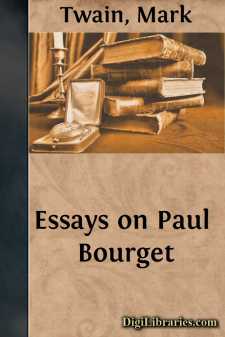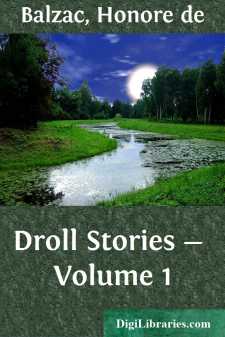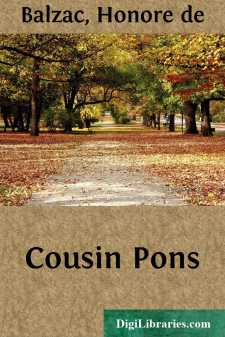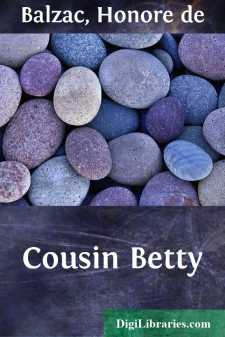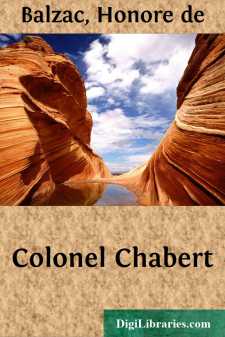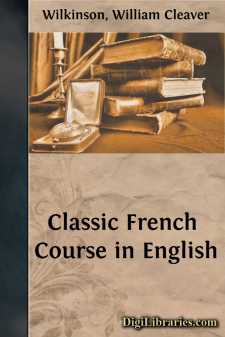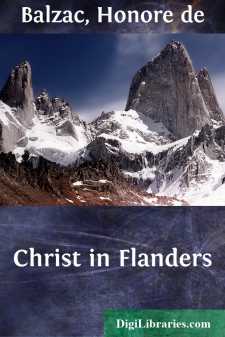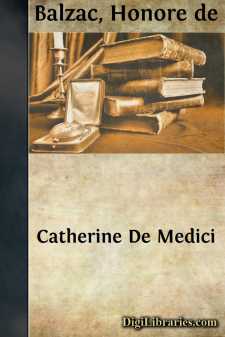Literary Collections
- American 84
- Ancient, Classical & Medieval 14
- Asian 1
- Australian & Oceanian 1
- Canadian 55
- Continental European
- English, Irish, Scottish, Welsh 179
- Essays 160
- General 24
- Letters 46
- Middle Eastern 1
Continental European Books
Sort by:
by:
Honore de Balzac
I There are houses in certain provincial towns whose aspect inspires melancholy, akin to that called forth by sombre cloisters, dreary moorlands, or the desolation of ruins. Within these houses there is, perhaps, the silence of the cloister, the barrenness of moors, the skeleton of ruins; life and movement are so stagnant there that a stranger might think them uninhabited, were it not that he...
more...
by:
Mark Twain
WHAT PAUL BOURGET THINKS OF US He reports the American joke correctly. In Boston they ask, How much does he know? in New York, How much is he worth? in Philadelphia, Who were his parents? And when an alien observer turns his telescope upon us—advertisedly in our own special interest—a natural apprehension moves us to ask, What is the diameter of his reflector? I take a great interest in M....
more...
by:
Honore de Balzac
PROLOGUE Certain persons have interrogated the author as to why there was such a demand for these tales that no year passes without his giving an instalment of them, and why he has lately taken to writing commas mixed up with bad syllables, at which the ladies publicly knit their brows, and have put to him other questions of a like character. The author declares that these treacherous words, cast like...
more...
by:
Honore de Balzac
TRANSLATORS PREFACE When, in March, 1832, the first volume of the now famous Contes Drolatiques was published by Gosselin of Paris, Balzac, in a short preface, written in the publisher's name, replied to those attacks which he anticipated certain critics would make upon his hardy experiment. He claimed for his book the protection of all those to whom literature was dear, because it was a work of...
more...
by:
Honore de Balzac
COUSIN PONS Towards three o'clock in the afternoon of one October day in the year 1844, a man of sixty or thereabouts, whom anybody might have credited with more than his actual age, was walking along the Boulevard des Italiens with his head bent down, as if he were tracking some one. There was a smug expression about the mouth—he looked like a merchant who has just done a good stroke of...
more...
by:
Honore de Balzac
COUSIN BETTY One day, about the middle of July 1838, one of the carriages, then lately introduced to Paris cabstands, and known as Milords, was driving down the Rue de l'Universite, conveying a stout man of middle height in the uniform of a captain of the National Guard. Among the Paris crowd, who are supposed to be so clever, there are some men who fancy themselves infinitely more attractive in...
more...
by:
Honore de Balzac
COLONEL CHABERT "HULLO! There is that old Box-coat again!" This exclamation was made by a lawyer's clerk of the class called in French offices a gutter-jumper—a messenger in fact—who at this moment was eating a piece of dry bread with a hearty appetite. He pulled off a morsel of crumb to make into a bullet, and fired it gleefully through the open pane of the window against which he was...
more...
FRENCH LITERATURE. Of French literature, taken as a whole, it may boldly be said that it is, not the wisest, not the weightiest, not certainly the purest and loftiest, but by odds the most brilliant and the most interesting, literature in the world. Strong at many points, at some points triumphantly strong, it is conspicuously weak at only one point,—the important point of poetry. In eloquence, in...
more...
by:
Honore de Balzac
CHRIST IN FLANDERS At a dimly remote period in the history of Brabant, communication between the Island of Cadzand and the Flemish coast was kept up by a boat which carried passengers from one shore to the other. Middelburg, the chief town in the island, destined to become so famous in the annals of Protestantism, at that time only numbered some two or three hundred hearths; and the prosperous town of...
more...
by:
Honore de Balzac
INTRODUCTION There is a general cry of paradox when scholars, struck by some historical error, attempt to correct it; but, for whoever studies modern history to its depths, it is plain that historians are privileged liars, who lend their pen to popular beliefs precisely as the newspapers of the day, or most of them, express the opinions of their readers. Historical independence has shown itself much...
more...



